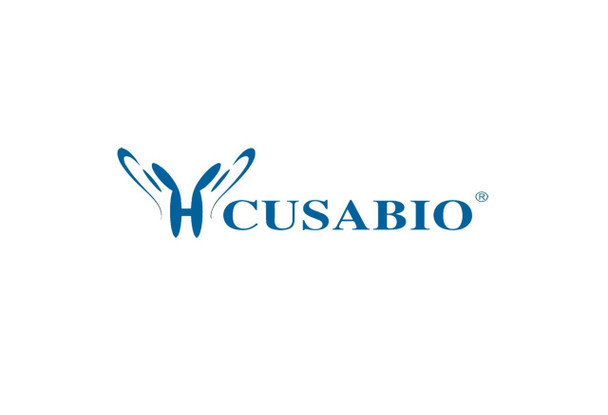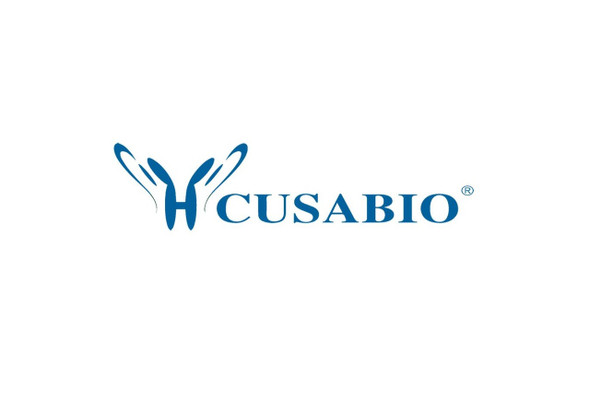Cusabio Epstein-Barr virus Recombinants
Recombinant Epstein-Barr virus Latent membrane protein 1 (LMP1), partial | CSB-YP314489EFC1b0
- SKU:
- CSB-YP314489EFC1b0
- Availability:
- 25 - 35 Working Days
Description
Recombinant Epstein-Barr virus Latent membrane protein 1 (LMP1), partial | CSB-YP314489EFC1b0 | Cusabio
Alternative Name(s): Protein p63
Gene Names: LMP1
Research Areas: Others
Organism: Epstein-Barr virus (strain GD1) (HHV-4) (Human herpesvirus 4)
AA Sequence: YFHGPRHTDEHHHDDSLPHPQQATDDSSHESDSNSNEGRHHLLVSGAGDGPPLCSQNLGAPGGGPDNGPQDPDNTDDNGPQDPDNTDDNGNTDDNGPQDPDNTDDNGPHDPLPHNPSDSAGNDGGPPNLTEEVENKGGDRGPPSMTDGGGGDPHLPTLLLGTSGSGGDDDDPHGPVQLSYYD
Source: Yeast
Tag Info: N-terminal 10xHis-tagged
Expression Region: 185-366aa
Sequence Info: Partial
MW: 21.3 kDa
Purity: Greater than 90% as determined by SDS-PAGE.
Relevance: Acts as a CD40 functional homolog to prevent apoptosis of infected B-lymphocytes and drive their proliferation. Functions as a constitutively active tumor necrosis factor receptor that induces the activation of several signaling pathways, including those of the NF-kappa-B family. LMP1 signaling leads to up-regulation of antiapoptotic proteins and provide growth signals in latently infected cells. Interacts with host UBE2I and subsequently affects the sumoylation state of several cellular proteins. For example, induces the sumoylation of host IRF7 thereby limiting its transcriptional activity and modulating the activation of innate immune responses.
Reference: "Genomic sequence analysis of Epstein-Barr virus strain GD1 from a nasopharyngeal carcinoma patient." Zeng M.-S., Li D.-J., Liu Q.-L., Song L.-B., Li M.-Z., Zhang R.-H., Yu X.-J., Wang H.-M., Ernberg I., Zeng Y.-X. J. Virol. 79:15323-15330(2005)
Storage: The shelf life is related to many factors, storage state, buffer ingredients, storage temperature and the stability of the protein itself. Generally, the shelf life of liquid form is 6 months at -20?/-80?. The shelf life of lyophilized form is 12 months at -20?/-80?.
Notes: Repeated freezing and thawing is not recommended. Store working aliquots at 4? for up to one week.
Function: Acts as a CD40 functional homolog to prevent apoptosis of infected B-lymphocytes and drive their proliferation. Functions as a constitutively active tumor necrosis factor receptor that induces the activation of several signaling pathways, including those of the NF-kappa-B family. LMP1 signaling leads to up-regulation of antiapoptotic proteins and provide growth signals in latently infected cells. Interacts with host UBE2I and subsequently affects the sumoylation state of several cellular proteins. For example, induces the sumoylation of host IRF7 thereby limiting its transcriptional activity and modulating the activation of innate immune responses.
Involvement in disease:
Subcellular Location: Host cell membrane, Multi-pass membrane protein
Protein Families: Herpesviridae LMP-1 family
Tissue Specificity:
Paythway:
Form: Liquid or Lyophilized powder
Buffer: If the delivery form is liquid, the default storage buffer is Tris/PBS-based buffer, 5%-50% glycerol. If the delivery form is lyophilized powder, the buffer before lyophilization is Tris/PBS-based buffer, 6% Trehalose, pH 8.0.
Reconstitution: We recommend that this vial be briefly centrifuged prior to opening to bring the contents to the bottom. Please reconstitute protein in deionized sterile water to a concentration of 0.1-1.0 mg/mL.We recommend to add 5-50% of glycerol (final concentration) and aliquot for long-term storage at -20?/-80?. Our default final concentration of glycerol is 50%. Customers could use it as reference.
Uniprot ID: P0C741
HGNC Database Link: N/A
UniGene Database Link: N/A
KEGG Database Link: N/A
STRING Database Link: N/A
OMIM Database Link: N/A









